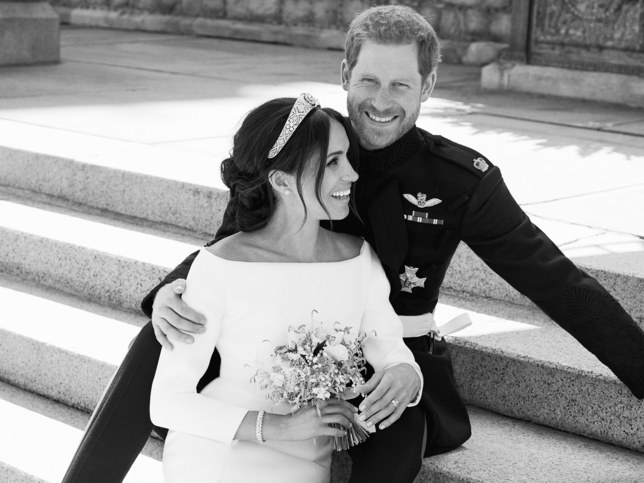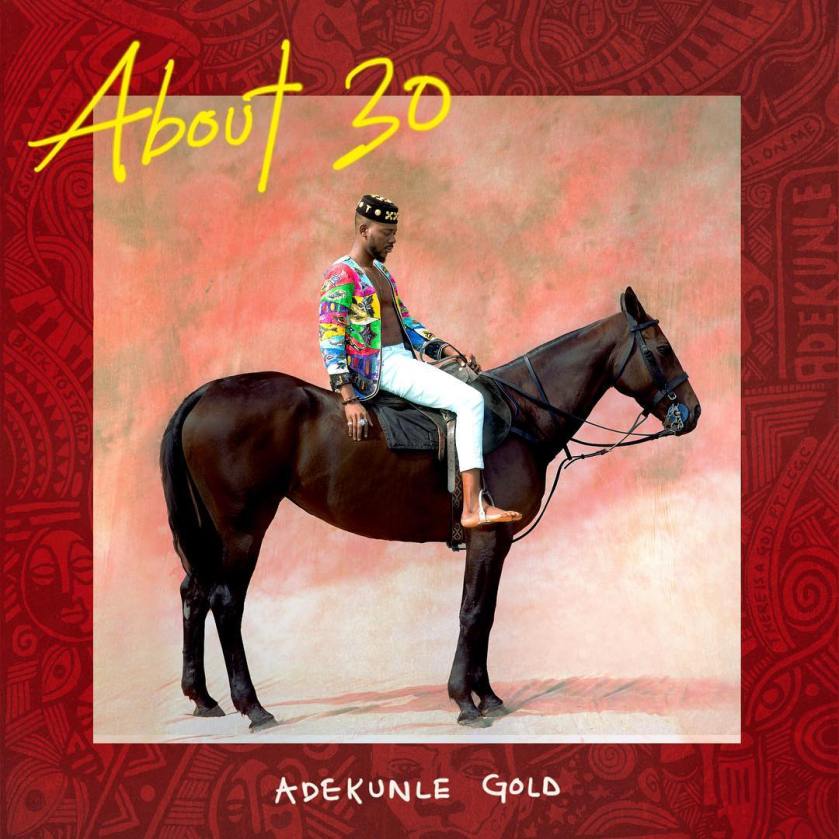The Royal Wedding
The royal wedding was last week and I found some of the opinions and takes on it to be a bit strange. I think it’s great that our beloved Prince Harry has found love. It’s also great that the couple were in a position to have such a stately and lavish wedding that was watched and adored by millions. As with William and Kate before them, it was like watching a fairytale come to life.

In terms of the wider picture, yes, it is a sign of progress that an American person of colour is now part of the royal family. I can’t deny that this would have been unimaginable just 50 short years ago. The same reasoning applies to the fact that she is an older divorcée.
The sentiment that the wedding ‘gives black women hope’ is obviously offensive and ludicrous but I’m mostly over my outrage – although I did tweet at Alex Jones who repeated it during the commentary to the wedding (she didn’t reply proving that she is committed to remaining an ignorant simpleton).
It’s the ‘this is what you have to do to became a princess’ takes that got to me. The advice included being a feminist, renouncing feminism (which Meghan Markle apparently did by giving up her career for Duchess-dom) and, of course, making sure that your first stupid marriage doesn’t work. But really, even if the princes (or every male with one drop or more of royal blood in England) decided to re-marry a minimum of 5 times each, how many women (even white women, Alex) have a shot at marrying into royalty?
Also, in respect of giving up feminism, the analysis of exactly what she’s getting in return – i.e. a bigger platform for her charity work – doesn’t hold water. May I go on a little side rant? I discovered during the many interviews in the course of the coverage that the end goals of one of the charities supported by the new royal couple are giving a disadvantaged group a ‘voice’, a ‘bigger platform’ and a ‘chance to change the world’. Yeah, I’m definitely not donating to that charity.
It seems to me that Meghan Markle’s decision to give up her career is less about any kind of forensic weighing of pros and cons and more about the realities of falling in love and deciding to marry a member of the British royal family. It’s clear that being part of the royal family is a demanding, scrutinised task if you choose full participation. It would be noteworthy if you didn’t and you retained your original profession, especially as a woman but it’s far more usual to give up your career and immerse yourself fully in your new role. Nothing more to it, I think.
The race takes were less annoying. Like I said, it’s impossible to deny the signs of progress – including the royal family having to deal officially with racism, previously conveniently ignored, and the slightly more diverse official wedding photograph. It was heartening to see the couple bring a bit of African American culture to the wedding, if only to thumb their noses at people who are incredibly grumpy that Meghan identifies as mixed race instead of black.
Some takes and jokes were a little out there. It’s not that the wedding will change race relations; it’s that the wedding is a reflection of how society has changed for the more inclusive – a rather cheerful reflection given the race shenanigans going in both the United States and the United Kingdom. I also don’t accept that the ‘black elements’ of the wedding was a cynical ploy by the royal family to use black culture to remain relevant. If it was, judging by the tormented looks on their faces during the sermon (which I was astonished to discover was less than 14 minutes long – it seemed to go on forever!), they were definitely failing to keep up a convincing performance. The jokes about Harry’s previous girlfriends were sexist and in poor taste.
Nigerians uniquely took the opportunity to complain that Nigerian brides, in comparison to Meghan, wear far too much make-up on their wedding day. The theme was taken up by sensible and less sensible people. Debates raged as the twitterazi couldn’t decide whether to blame the brides or the make-up artists for this assault on their senses and whether brides had trial sessions or not; turning even (religious) feminists against (choice and sex positive) feminists.
From my limited experience, I can make two observations – yes, Nigerian make up artists can be a little heavy-headed and no, this doesn’t have anything to do with the royal wedding.
About New Music
About 30

I’ve finally got my new computer to download my iTunes library; thus permitting me to listen to About 30, the new album by the saintly and gorgeous Adekunle Gold. When I told my husband this morning that ‘it’s actually really good!’, he asked why I had bought it if I thought it was going to be bad. It’s not that I thought it would be bad but I have a theory about the apparent disappointment that sometimes comes with second albums, especially when the first album has been so well-received. I’m pretty sure this theory is not originally mine.
Firstly, the artist has had an unlimited time period, I think, to write their best material for the first album but, conversely, is under pressure to replicate their success in a shorter space of time for the second, often leading to shoddier songs. Secondly, even if the album is as good as the first, their audience is no longer in awe of their particular type of music. If their second album is too similar to the first one; they are accused of ‘not growing’. If it is too different, they have abandoned the original sound that endeared them to the world in the first place – striking the right balance is a difficult challenge.
I’m pleased to report that I don’t think this album has any of the above problems. I honestly thought, having bought the first album and then heard the intermittent singles Call On Me, Only Girl and Money, that the second album would be more of the same. I was prepared to put up with it because of AG’s beautiful` voice and above-mentioned saintliness and gorgeousness. However, he has somehow managed to strike…well, gold (I can assure you that AG has never before and will never again hear this particular pun about his music). My favourite songs so far are Yoyo, Mama and Mr Foolish (honourable mention to ‘Back to Start’).
This is Nigeria
Falz has also released his video and song version of Childish Gambino’s ‘This is America’ called ‘This is Nigeria’. Reactions can be roughly categorised like this: the vast majority, I’d say over 85% and that includes me, think it’s really good, creative and clever and the rest are griping about it.
The complaints range from the fact that Falz didn’t use symbolism or as much imagery to the alleged shoddy production of the video (?) to disrespect for Christian and Muslim religions to something else that even I can’t understand but sounds suspiciously like trying to prove how clever they are by refusing to be impressed by Falz – someone who ‘woke Nigerian twitter’ insist continually and aggressively is the cleverest thing to happen to Nigerian music and only the truly thick can fail to agree with everything he says. Incidentally, if there is any general antipathy towards Falz, I suspect this type of thing is the source. Like Beyonce and the Beyhive, I think that he will rise above it all and the world will continue to appreciate him for his brilliance.

The negative comment which has attracted the most gob-smacking is the accusation that he copied the concept from Childish Gambino’s video and song. Yes, that’s it. In a clear remake of the song, using the similar music, choreography and cinematography, a large group of people have decided to make political capital out of the fact that it’s kinda like the original, isn’t it?. Some people have grumped that he has no right to complain about yahoo boys if he is just going to steal someone else’s concept (proof that some people will NEVER EVER get over his yahoo boys comments) and wondered whether he obtained all the necessary copyright permissions (something that, as long as he doesn’t try to pass off the concept as his own, is actually none of our business). This reaction has provoked a pained video response from the man himself in which he couldn’t seem to decide between his comedy accent, pidgin English and regular English, sometimes switching mid-word, and more than one embittered ‘lol’ type tweet from him.
Somehow amongst all the contempt (as demonstrated above) that I have for the criticism, I have unwittingly fallen into the category of ‘haters’. This is how it happened. I retweeted the video as soon as I saw it – a simple reaction to a brilliant video, especially since I hadn’t seen the original. I didn’t actually see the negative comments at first, because I follow woke Nigerian twitter mostly; just the responses to them. I searched ‘falz’ to try and understand the furore, started reading unrelated tweets about how sexist some of his music, in the way that he and fellow ‘clever’ artist, Ajebutter, demonise women, is. I was so delighted that other people finally got it that I started liking these comments indiscriminately, trying to find the one that encapsulated my thoughts most precisely. Therefore my handful of followers, if they pay any attention to my tweets, may be forgiven for being slightly confused as to how I feel about Falz (I really like him and his music but his sexism discourages me in a way it wouldn’t if it came from someone like Wizkid).
Falz said in his response that the video is “moral instruction”. He is a brilliant writer but his attempts at moralising sometimes fall flat mostly because he has a gender privilege blind spot and like the vast majority of well-to-do Nigerians, is quite classist. ‘This is Nigeria’ is actually one of his successes as far as moralising is concerned. He hasn’t said anything that he hasn’t said before, but he says it very well in the song. He understands that it’s not enough to pass on the message; he still has to fulfil his artistic obligations. It’s a great song and video.
As for being unique, he approached the song in a different way from Childish Gambino (and if he understands ‘This is America’ completely, then Falz is a much more intelligent person than me). As far as I can tell and having watching some explanatory videos, ‘This is America’ is directed at the distractions of celebrity/insta/popular culture (black or not) with an undercurrent pointing to the disregard for life and freedoms in America, presently and historically, while Falz took a more straightforward approach of pointing out various ills in Nigerian society.
Both are good. Falz’s is not better than Gambino’s of course – don’t be silly – you only have to see this video https://www.youtube.com/watch?v=9_LIP7qguYw to appreciate that the original version is as intricate as Falz’s is literal. And there’s nothing wrong with either approach. Well done everyone. Wehdone.

